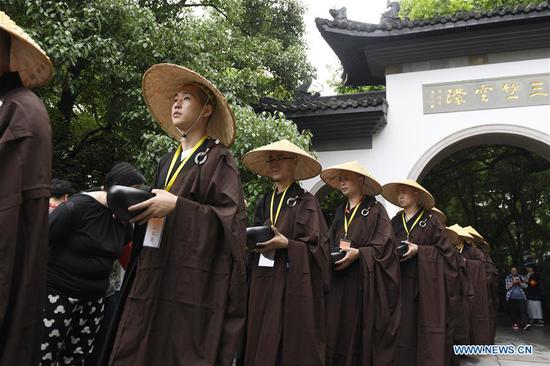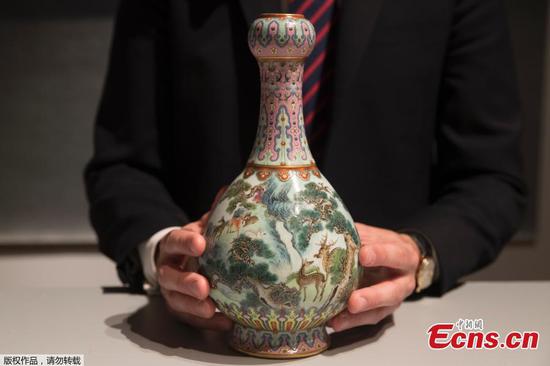German Chancellor Angela Merkel has embarked on her first trip to China since re-election, also her 11th visit to the country in 13 years, aiming to boost bilateral ties further and strengthen cooperation.
Before her departure, Merkel filmed a podcast and set out her expectations for the visit, emphasizing the importance of promoting multilateralism.
Some media believe the emphasis on multilateralism shows the value Merkel's government places on the visit to China. It reflects Europe’s anger and anxiety in the face of US unilateralist squeezes, and lingering questions over how to deal with the disruption provoked by recent White House policies.
"It is no longer such that the United States simply protects us, but Europe must take its destiny in its own hands, that's the task of the future," Merkel said on May 10, after US President Donald Trump left traditional allies scrambling by ditching the landmark Iran nuclear deal.
Merkel’s words were echoed by European Union's top official Donald Tusk, who called on Europe to “get rid of all illusions" and said “if you need a helping hand you will find one at the end of your arm,” when he spoke at a rally of EU member states in Bulgaria on May 16, according to the Economic Times.
The EU leaders attending the rally echoed his words and stated that in the face of climate change, tariff increases, Iran’s nuclear agreement and other US-made issues, it is necessary to defend the “rule-based international order.”
Since Trump came to power, US-EU relations have faltered. First, the United States withdrew from the Paris climate agreement, then from the Iran nuclear agreement, while also insisting on tax increases on imported goods from Europe, seriously cracking down on major decisions and interests in Europe’s politics, economy, and diplomacy.
French President Emmanuel Macron and Merkel went to the White House one after another in April in the hope of dissuading the United States from abandoning the Iran deal and persuading it to pull back from implementing trade tariffs. However, Trump still went his own way.
"Merkel’s trip to China comes at the best time, as the United States wants to fight a trade war with many of his trade partners. China and Germany are important players on the world market. So, if they can cooperate, they can fight against protectionism," Jiang Shixue, director and professor of the Center for Latin American Studies under Shanghai University, told CGTN in a Skype interview.
"And between China and Germany, bilateral trade totals a huge number, almost more than 200 billion US dollars. So what they say, and what they do, will have a big impact on the world market."
At present, the EU is extensively seeking international support for the Iranian nuclear agreement and has prepared a plan to boycott the sanctions imposed by the United States on companies that have economic and trade ties with Iran. It has also put forward some strong countermeasures against the tariffs imposed by the US.
However, Europe's ability to respond to US unilateralism is constrained. On the one hand, Europe retains many common interests and areas of cooperation with the US. On the other, EU leaders emphasize that they must “unite” to cope with US pressure. But, the EU’s 27 member states are not always united.?However, if Europe does not have a "long-term strategic plan," how to implement it will remain questionable.
Meanwhile, China has announced that it will vigorously expand its opening up in all directions and share its own development and reforms with the world.
Recently, China has performed well in responding to the unilateralist challenges initiated by the US. After arduous negotiations, a trade war has been avoided. China has become a mainstay in promoting the sound development of international relations. This undoubtedly enhances European confidence in countering unilateralism and protectionism.
China has been Germany’s biggest trading partner for two consecutive years, and Germany is China’s largest trading partner in Europe. Both countries have opposed trade protectionism and promoted economic globalization, and are expected to continue strengthening multilateralism and economic cooperation.
Progress has also been made in ensuring overlap between the countries' strategies as well as working together on the Belt and Road Initiative. On top of that, China and Germany are close partners in international frameworks such as the G20.
President Trump’s policies on trade and Iran have brought Germany and Europe closer to China than ever before. Merkel hopes she will find common ground on the trip, to push back against protectionist trade policies and save the Iran nuclear agreement.

















































